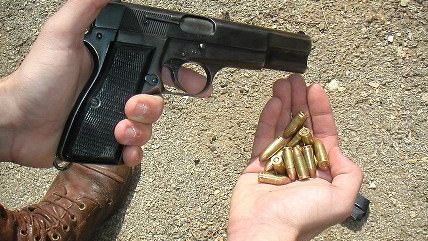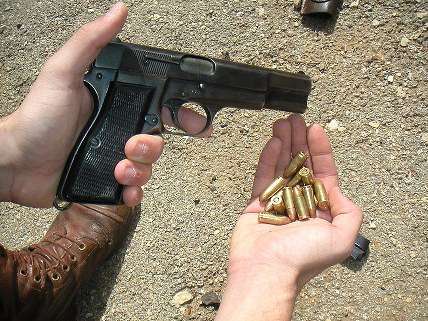Colorado Spends Millions to Perform 7 Percent of Expected Gun Background Checks


Amidst much debate, and the ultimate recall of two gun-controlling state senators (and resignation of a third), Colorado lawmakers inflicted tighter gun laws on their suffering constituents last year. Among those laws was a requirement that all private transfers of firearms go through a background check of the sort already imposed on commercial transactions. Lawmakers estimated that 420,000 background checks would pass through the system over the first two years, and allocated $3 million for the cause.
As it turns out, the background check shop is in place, but there aren't so many customers for the new bureaucracy. According to the Associated Press:
Democrats pushed the proposal into law last year as part of a package of gun restrictions meant to improve safety after devastating mass shootings. Lawmakers drafting the background check requirement, aimed at keeping firearms away from those with a criminal history, relied on information from a non-partisan research arm of the Legislature that predicted about 420,000 new reviews over the first two years. Accordingly, they budgeted about $3 million to the agency that conducts the checks to handle the anticipated surge of work.
But after a year of operating under the new system, Colorado Bureau of Investigations officials have performed only about 13,600 reviews considered a result of the new law — about 7 percent of the estimated first year total.
That 13,600 figure also includes gun show sales, which were already required and not part of the expected flood of checks on private transfers.
So…Savings, right? Maybe not. The new agency had to be created after all. It hasn't filled all of its authorized positions, since there's not much to do, but it's not clear how much of the allocated money is just sitting around waiting to be diverted to some other…umm…worthy expenditure.
Are Colorado residents just not that wild about guns? Maybe there was never much of a need for private background checks after all. Lawmakers' estimate was based on a National Institute of Justice guesstimate that 40 percent of gun transfers are between private parties. Nobody knows whether that's even close to accurate.
Or maybe in a state that prohibits gun registration, people knew there was no possible way for officials to track the movement of their firearms. So they're just ignoring the stupid law.


Show Comments (25)